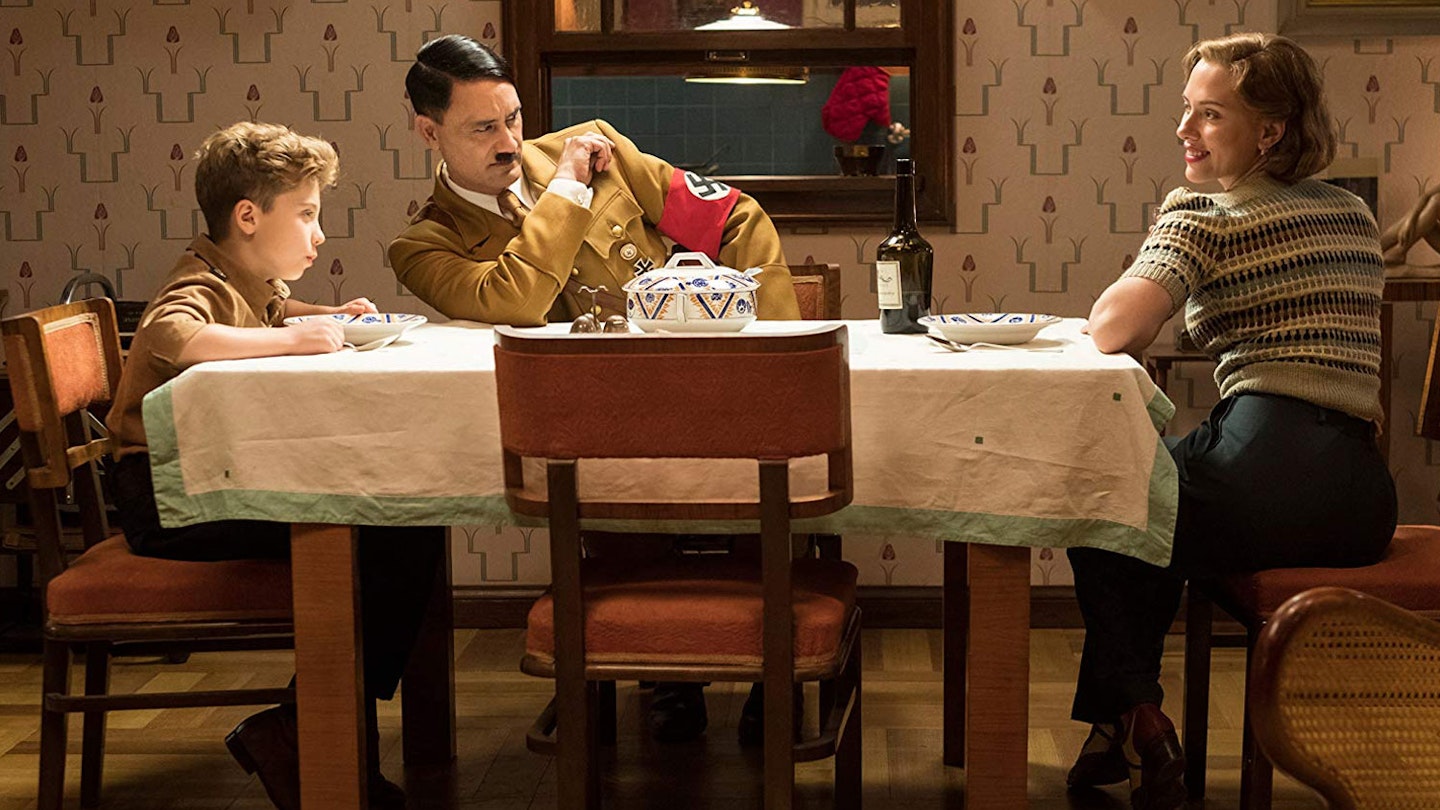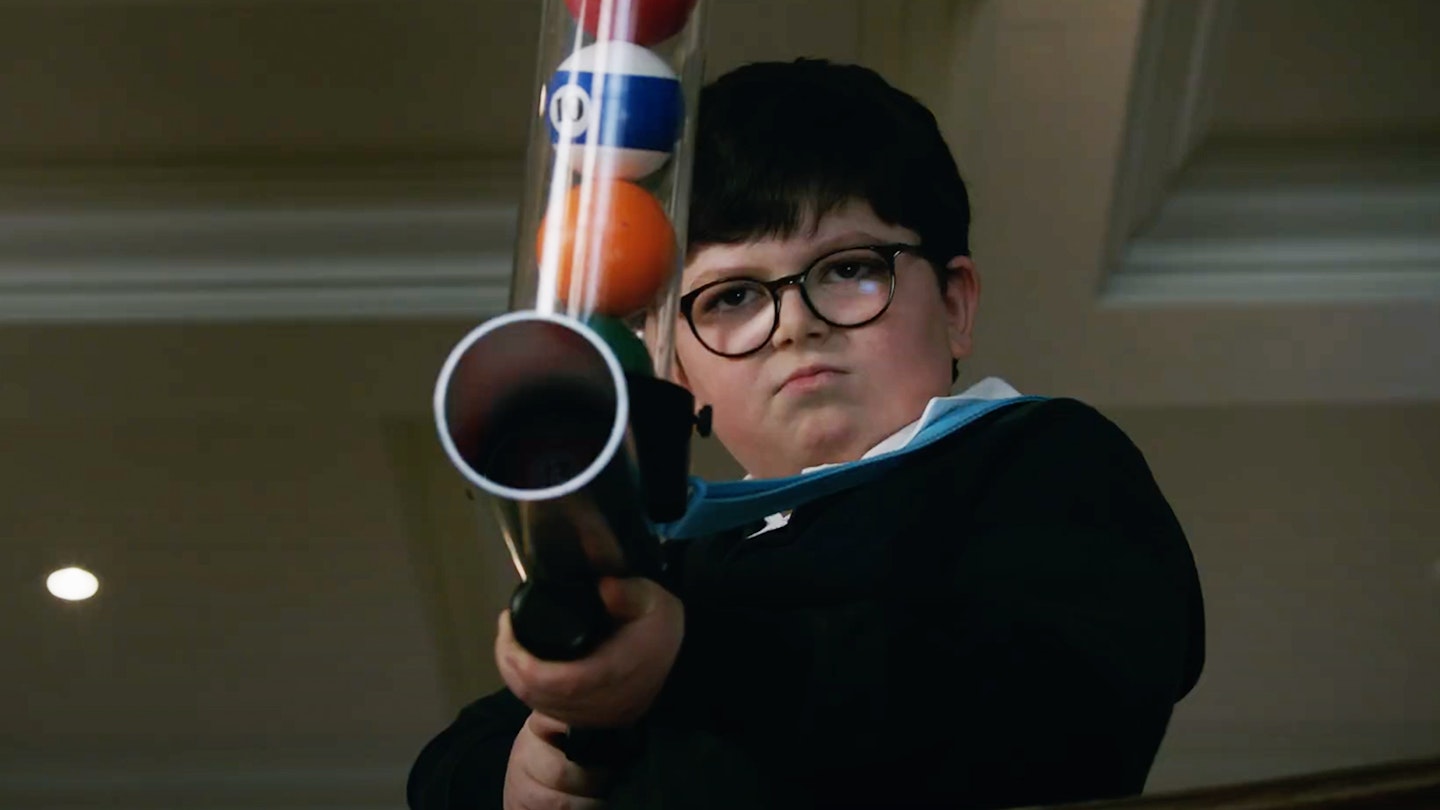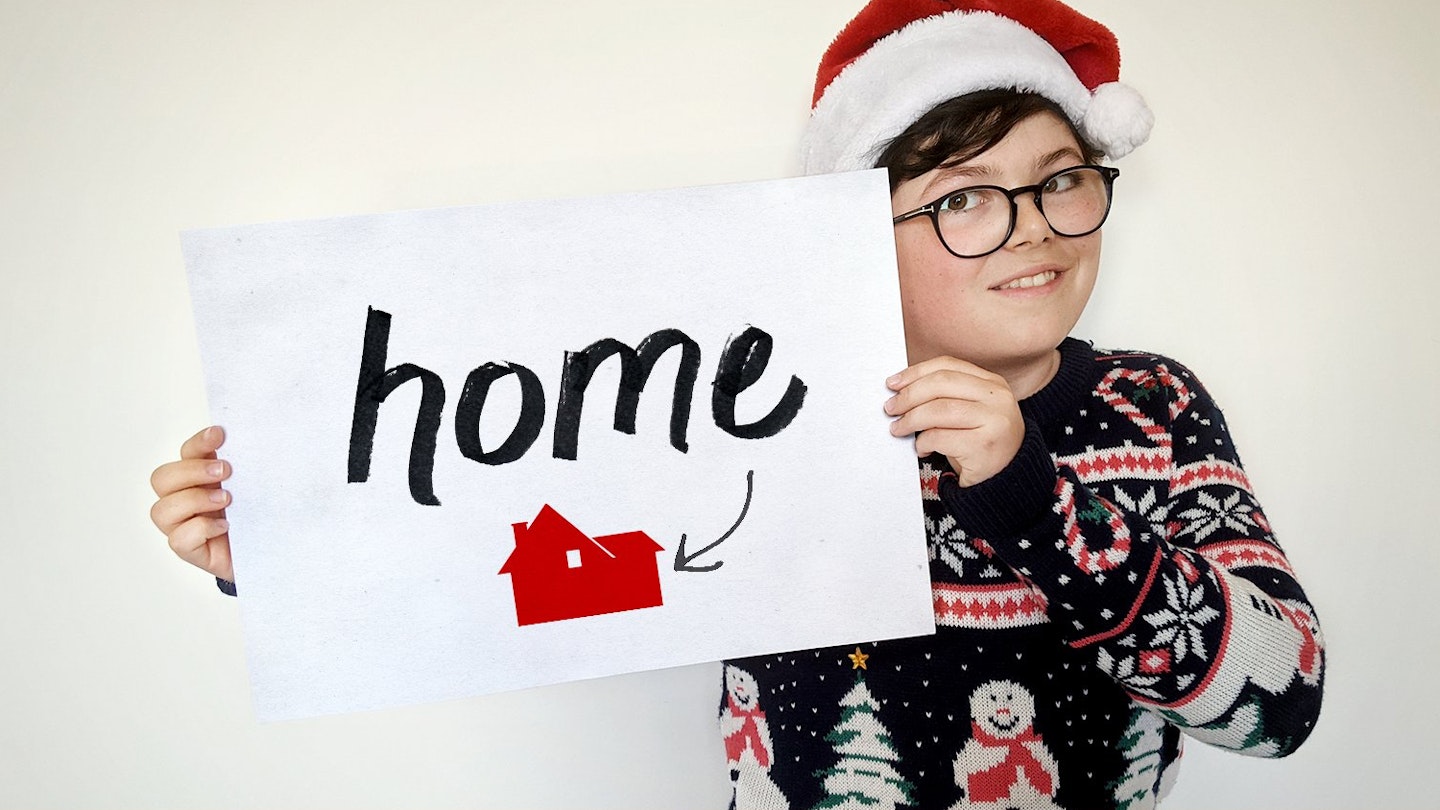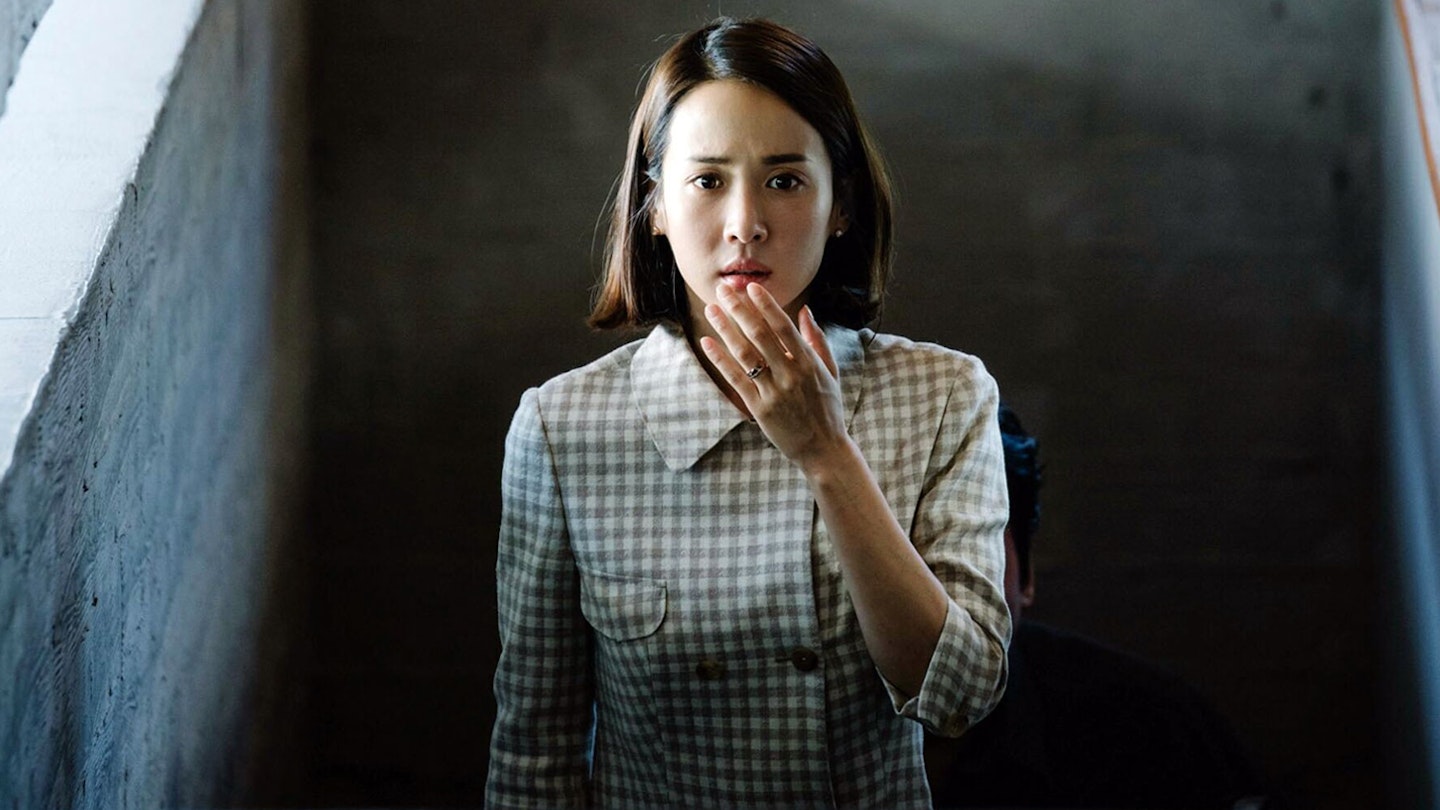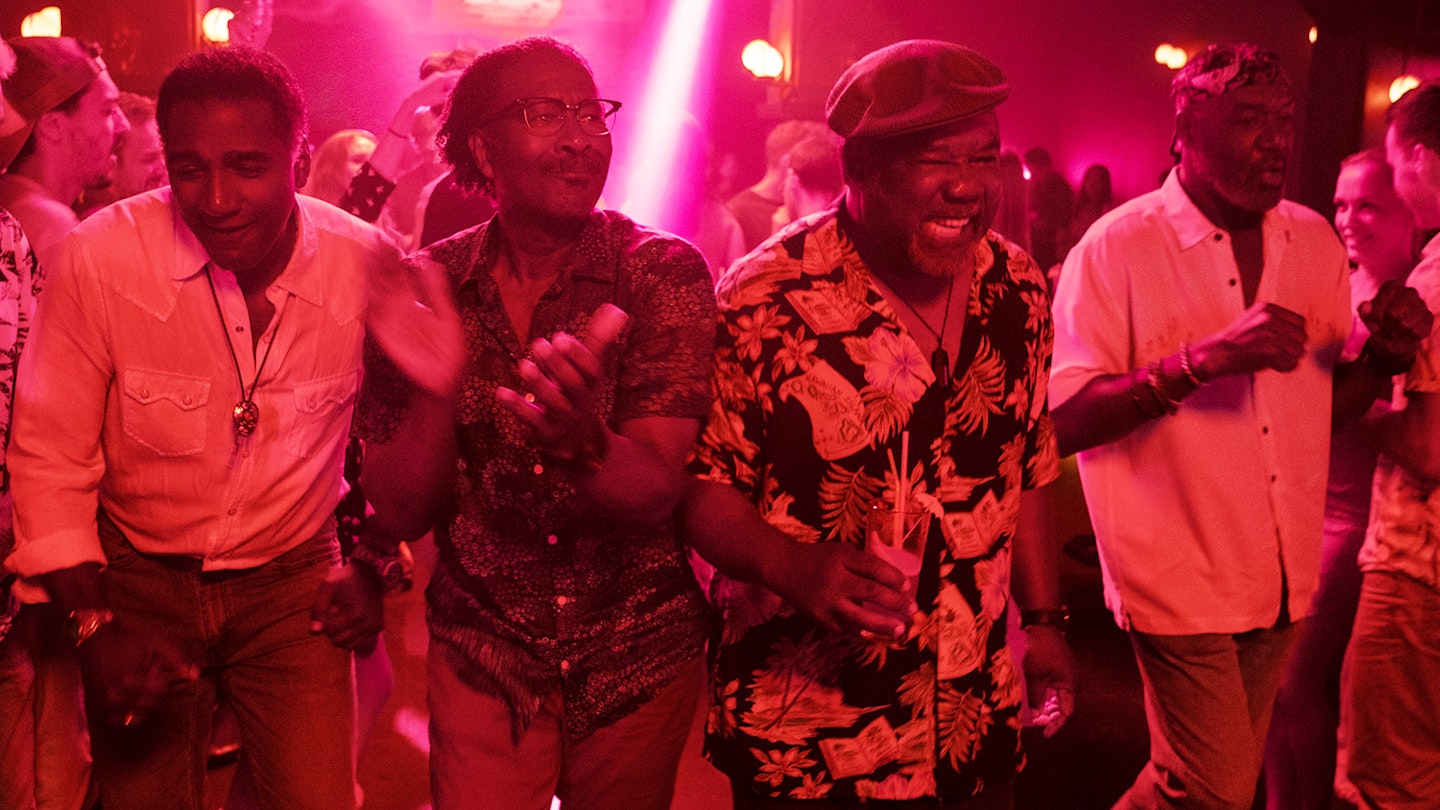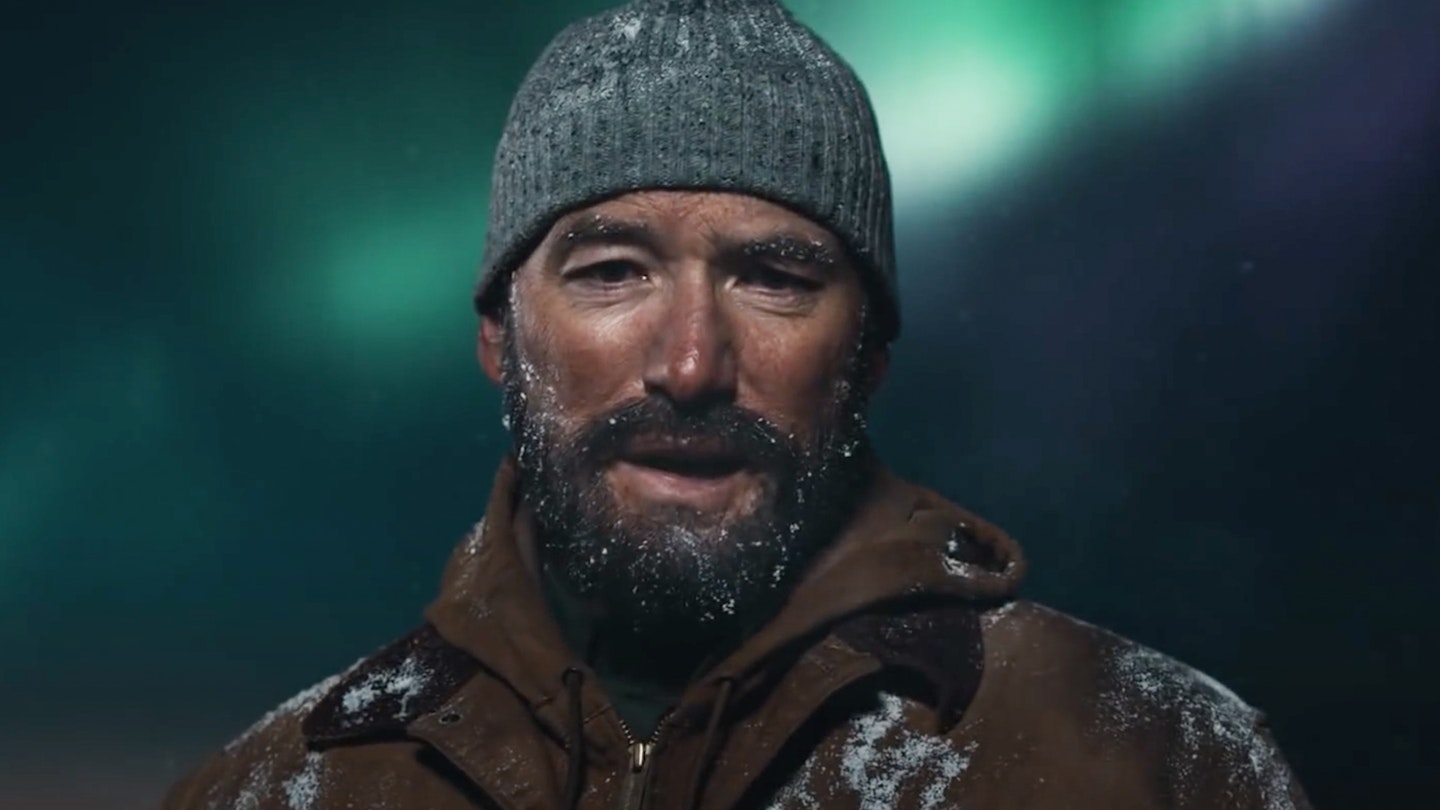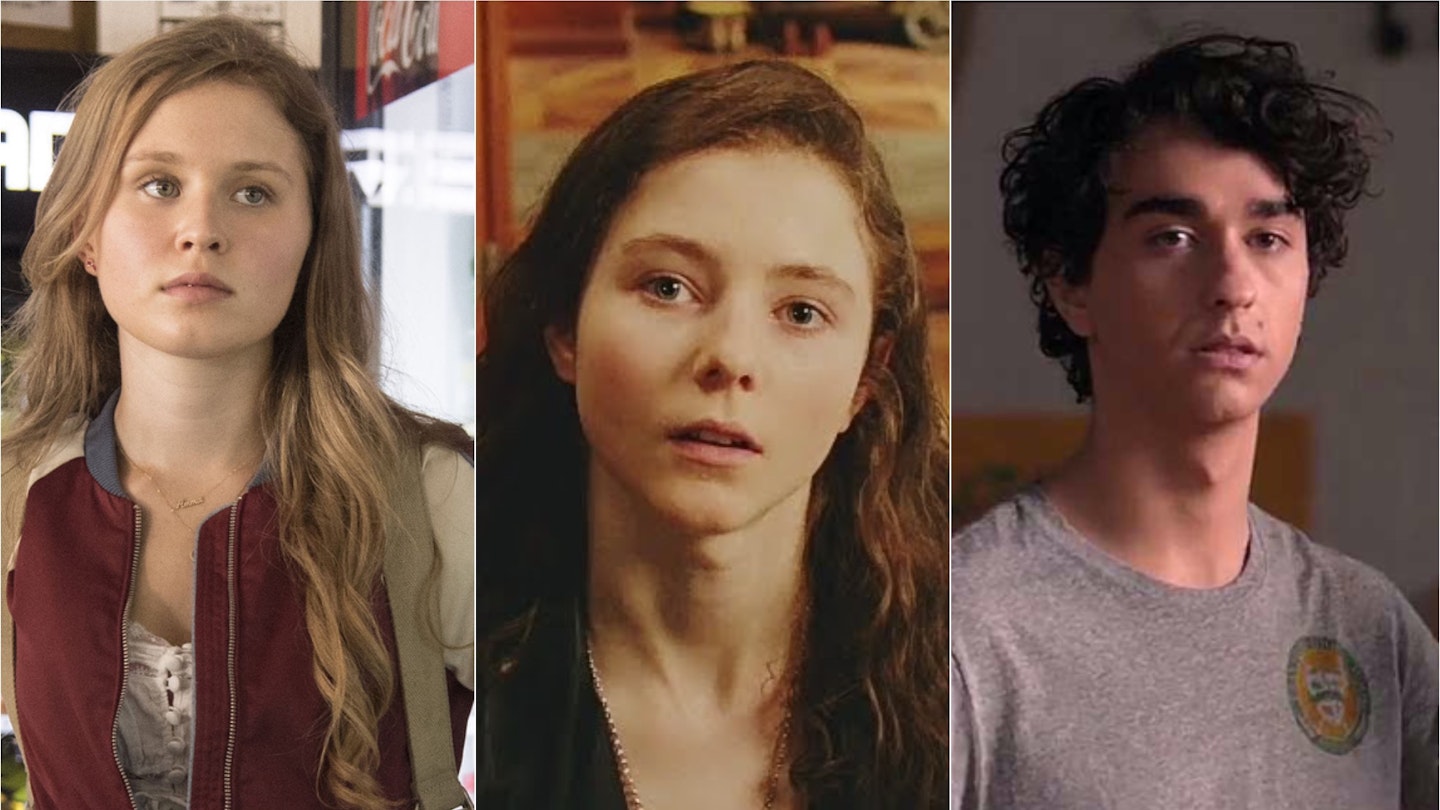Inside Out’s Riley had Bing Bong. Fight Club’s Jack had Tyler Durden. Now, in Jojo Rabbit, we get another cinematic imaginary friend for the ages: Adolf Hitler. In Taika Waititi’s latest, Hitler Youth boy Jojo’s confidant is none other than a goofed-up, gurning version of the Nazi leader played by Waititi himself. If the fact that Waititi is a Polynesian Jew doesn’t tip you off to the fact that he’s aiming for anything but a respectful portrayal of the mass-murdering dictator, you only have to look at the social media post the writer-director-actor shared after the first week of shooting, complete with the hashtag “#FuckYouShitler”.
Creating a World War II-set comedy-drama that counts on wringing laughs from one of history’s greatest monsters is a big swing, even for Waititi — a filmmaker whose deadpan New Zealand wit and idiosyncratic sensibilities have given us everything from a lo-fi indie romcom (Eagle Vs. Shark) to a vampire mockumentary (What We Do In The Shadows) and a fizzing Flash Gordon-inspired Marvel space opera (Thor: Ragnarok). If Jojo Rabbit is yet another departure — his first war movie and his only period piece — it’s also a return to the coming-of-age territory he explored in Boy and Hunt For The Wilderpeople.
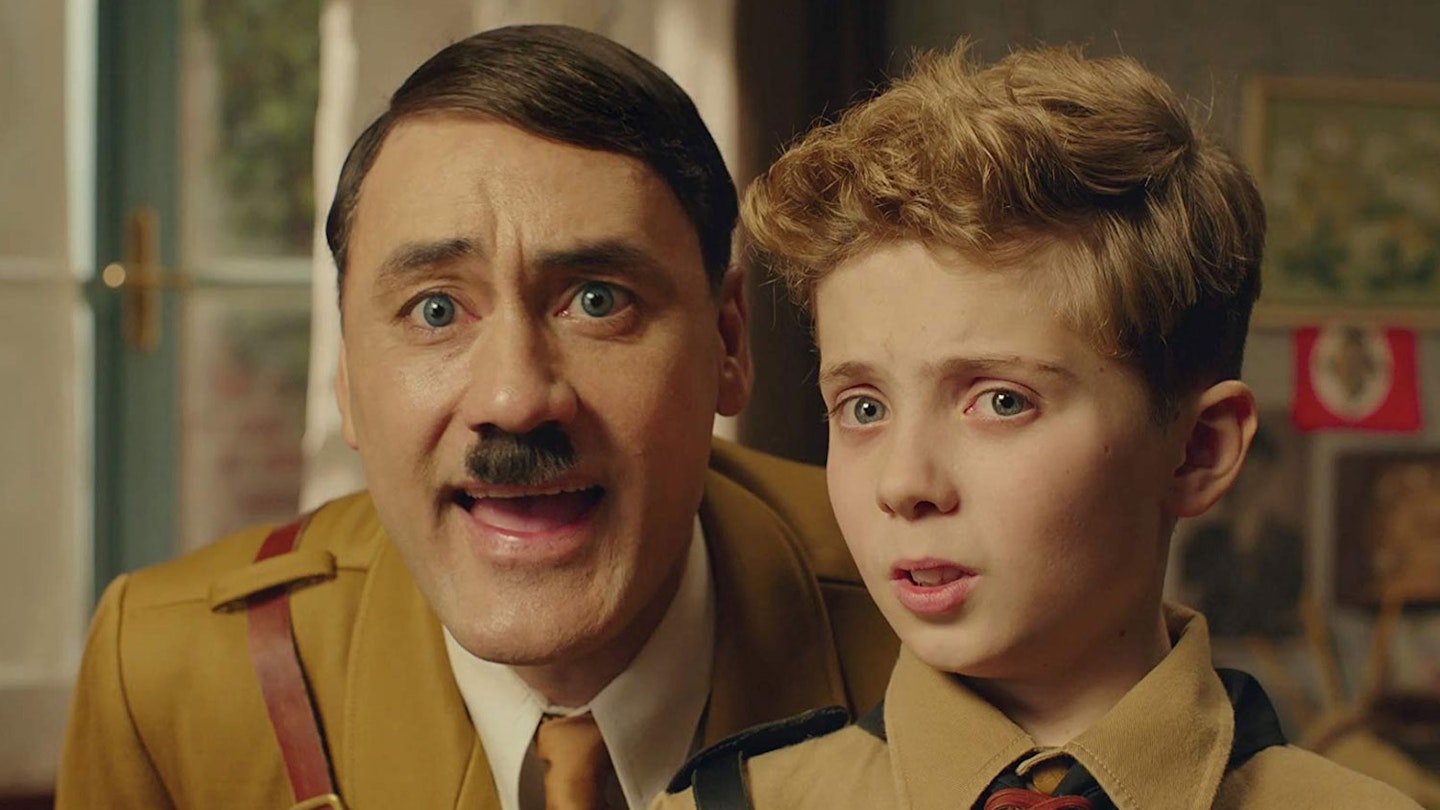
Like those films’ protagonists, the titular Jojo (Davis) is a confused kid in search of any kind of father figure. Where Boy and Ricky Baker found theirs in a deadbeat dad and Uncle Hec respectively, Jojo finds his in an imagined Führer — part inspirational guru, part childish playmate. It’s another scene-stealing performance from Waititi, knowingly self-mocking, sometimes surprisingly sweet (this, after all, is a child’s self-projected need for companionship and reassurance), but growing increasingly nasty as Jojo’s understanding of the world starts to shift.
Jojo Rabbit's tone often feels at war with itself.
That’s all due to the discovery of his mother’s (Johansson) big secret — Elsa (McKenzie), a Jewish teenage girl living in the walls of their house, hiding out until the war ends. When Jojo discovers her — in a sequence smartly framed like a horror scene as he creeps through the dark crawlspaces of the family home — the hateful ideology he’s unquestioningly absorbed his whole life is thrown into question. Played with resolve and fierce humanity by McKenzie, Elsa is no victim — she’s a real force, both disdainful and mocking of Jojo’s assumed prejudices, interrogating him to highlight the insidious ridiculousness of Nazi rhetoric around the Jewish people. Their scenes together are the film’s undoubted highlight, crackling with tension, wit and anger. Through Waititi’s lens, Jojo isn’t actually scared of her because she’s a Jew — it’s because she’s a teenage girl, and he’s a ten-year-old boy.
If only the rest of the film were so assured. Where Boy and Hunt For The Wilderpeople cultivated such delicate tonal palettes — moments of gloriously silly humour sitting alongside grief and insecurity for carefully calibrated bittersweetness — Jojo Rabbit’s tone often feels at war with itself. While Waititi’s own outsized performance largely hits the spot, when several other characters — particularly Rebel Wilson and Sam Rockwell’s daffy Nazis — attempt to play on that wild, aloof, Taika-specific comic register, they struggle. The pervasive broad slapstick, distractingly inconsistent comedy accents and uncomfortable whimsy nearly unbalances the film.
But the heavier Jojo Rabbit becomes in the second half, the more its earlier faults are balanced out. As Jojo’s perspective shifts from childhood innocence to brutally forced maturity, the colour of his world literally drains. Alongside a gut-churningly tense Gestapo raid and one deeply upsetting moment of utter heartbreak, the need for laughter — for any kind of levity or humanity in the face of total callousness — becomes far more necessary.
At the heart of it all is Jojo himself. Roman Griffin Davis connects and convinces as a scared kid growing up in a world that he comes to realise is cruel and broken — a naive boy who might claim to “love killing”, but in reality can’t tie his own shoelaces. It’s his vulnerability that stays with you, his growing realisation that he cannot take goodness for granted. And with racist ideologies resurfacing once again in the present day, Jojo Rabbit is a reminder that we shouldn’t either.
